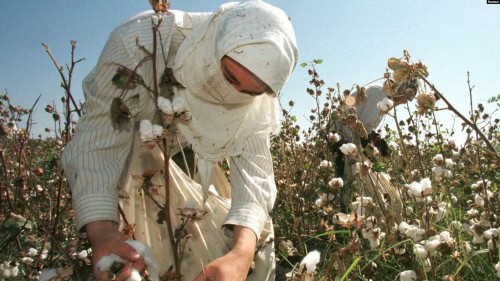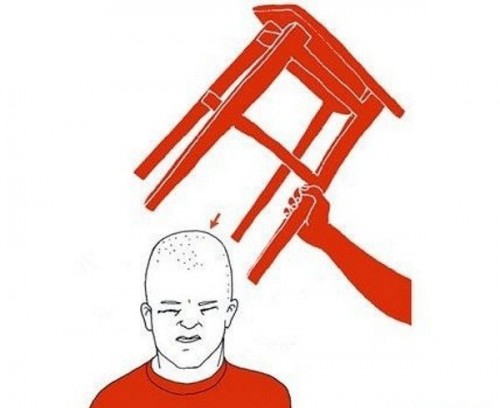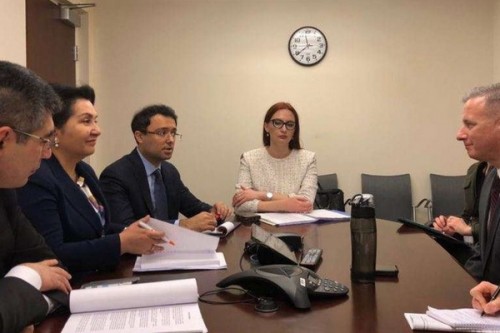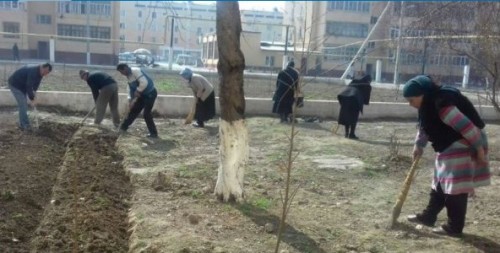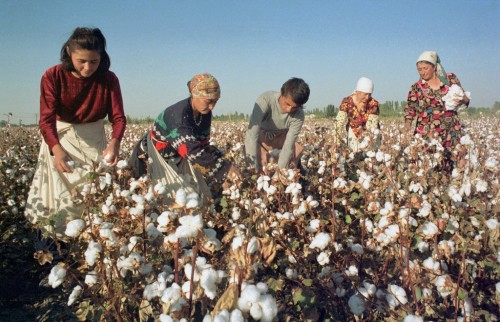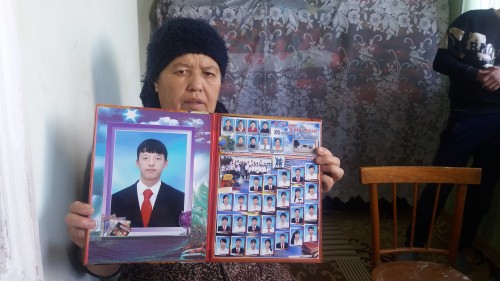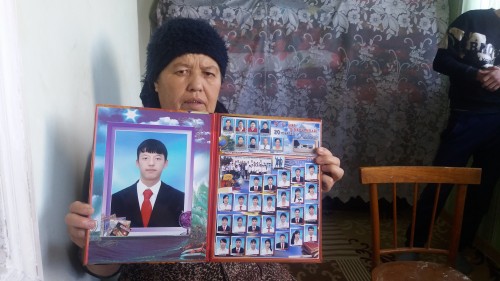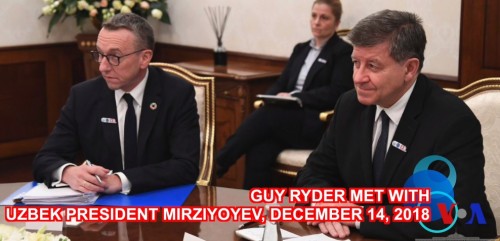Countries
Solidarity campaigns
13 August 2024
Georgia: Support striking workers at Evolution Gaming
5 June 2023
Georgia: Justice for Wolt couriers
10 May 2023
Belarus: Trade union activity is not extremism!
2 November 2019
Kazakhstan: Trade unionist Erlan Baltabay imprisoned - again!
19 November 2018
Kazakhstan: Stop repression and physical attacks on leaders of independent unions; hands off Larisa Kharkova, Erlan Baltabai and Dmitriy Senyavskiy
18 April 2018
MALOKHAT STILL NEEDS YOUR HELP
News
04 April, 2019 / uzbekistan
ILO Cites Dramatic Drop in Uzbek Use of Forced Labor
The International Labor Organization is reporting a dramatic 48 percent reduction last year in the use of forced and child labor in Uzbekistan, which for decades has been listed among the world's worst offenders.
14 March, 2019 / uzbekistan
Head of Gurlen District Assaults Farmer
Uzbek-German Forum has received an audio recording of Alisher Salayev, the head of the Gurlen district of the Khorezm region, in which he is heard shouting and using obscene language during a meeting with farmers on March 11 in the building of the Gurlen district hokimiyat. According to the UGF monitor who spoke to an eyewitness, Salayev reprimanded 12 farmers for the failure to go to the Yangibazar district for a seminar held by Uktam Kuchkarov, the deputy of the Khorezm region.
25 February, 2019 / uzbekistan
Harassment of Human Rights Activist Uktam Pardayev by Jizzakh Officials Continues
Jizzakh human rights activist Uktam Pardaev is seriously concerned for his own safety and the safety of his family. On February 24, Pardayev told Uzbek-German Forum (UGF) that over the past week, he and his family members have been under surveillance.
19 February, 2019 / uzbekistan
Governmental delegation of Uzbekistan takes part in meeting of Cotton Campaign
Tashkent, Uzbekistan (UzDaily.com) -- On 4 February 2019, a government delegation of the Republic of Uzbekistan led by Deputy Prime Minister Tanzilya Narbayeva attended the annual meeting of the international coalition Cotton Campaign, which was the initiator of the so-called boycott ”against Uzbek textile products.
16 February, 2019 / uzbekistan
Cotton Campaign Meets with Senior Uzbek Officials in Washington —
The Cotton Campaign hosted the first-ever, high-level delegation of Uzbek government officials to join its annual strategy meeting on February 4 at a pivotal time for reform to end forced labor in Uzbekistan. Building on discussions in May 2018, when a Cotton Campaign delegation visited Tashkent, the two sides agreed on broad areas of further progress that are necessary to achieve lasting reform. The Cotton Campaign and the Government of Uzbekistan also agreed to intensify direct dialogue in 2019 in order to encourage and accelerate the progress of reform.
07 February, 2019 / uzbekistan
Uzbek teachers, nurses 'forced' to clean streets and harvest wheat
Nurses and teachers in Uzbekistan are being forced by officials to clean streets, plant trees and harvest wheat or face the sack, fines or pay cuts, despite a government drive to end state-imposed work, labor rights groups said on Thursday.
21 January, 2019 / uzbekistan
Suspend bank loans tainted by Uzbek forced labor
The World Bank is an institution that provides loans for developing countries. Right now it is providing almost $500 million to Uzbek agriculture projects. Yet Uzbekistan’s cotton industry has historically relied upon state-sanctioned forced labor.
09 January, 2019 / uzbekistan
Uzbek-Spanish Company Implicated in Forced Labour with Tragic Consequences
Every year, employees from Maxam-Chirchiq and Ammofos-Maxam are forcibly sent to pick cotton for up to two months. This often involves living and working in inappropriate conditions, away from their families, with inadequate food, water and sanitary facilities.
18 December, 2018 / uzbekistan
Spanish-Owned Chemical Company Implicated in Forced Labour with Tragic Consequences
24-year-old Sohibjon Mutalibov, an employee of Ammofos-Maxam, the largest producer of mineral fertilizers in Uzbekistan, was forcibly sent to pick cotton in the Jizzakh region on September 26, 2018. Two days later, he died following a fight with a local resident who fractured his skull. Sohibjon lay in a coma for seven days and died without regaining consciousness in hospital in the Dustlik district of the Jizzakh region. Sohibjon was one of the hundreds of thousands of employees of enterprises that were forcibly sent to pick cotton in the fall of 2018 under the threat of dismissal.
16 December, 2018 / uzbekistan

